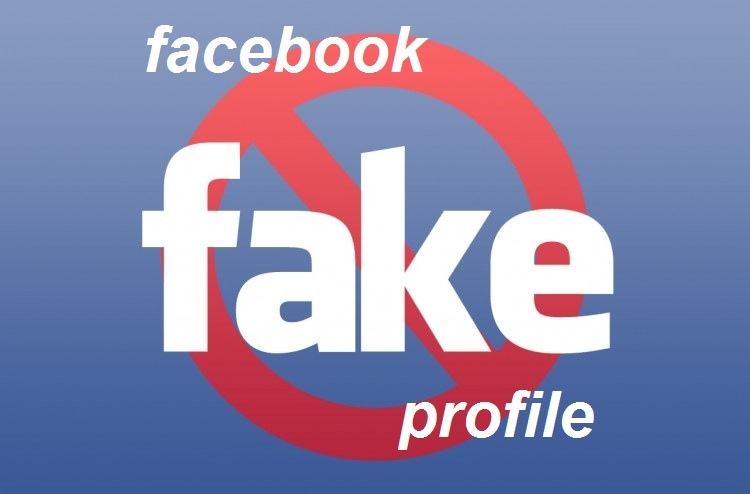According to statistics, Facebook has over 2.7 billion monthly active users, with phony accounts accounting for approximately 5% of the total. That means there are around 135 million bogus profiles among the 2.7 billion active users.
Unless you are a law enforcement agency or an expensive legal company, someone creating a false account of yours is not a big concern for Facebook.
The majority of fake Facebook accounts are created by adolescents in relationships who want to either ruin their ex-partner’s reputation by uploading private pictures or stalk other people, while another group uses fake accounts for spamming, spreading promotional content, building fake page likes, and so on.
At first glance, a fake Facebook profile may seem indistinguishable from a genuine one. But the true test lies in the intricate details. Uncovering these subtleties is crucial in exposing the facade of a fake Facebook accounts. Here are a few strategies to spot these fake profiles.
1. Forged or stolen photographs
Fake profiles are often characterized by their lack of personal anecdotes or insights into their daily lives. Instead, they rely heavily on visual content to create the illusion of a busy and fulfilling life. One tell-tale sign of a fake profile is the type of photos they publish.
These individuals are often forced to steal images of others they are trying to impersonate, as they don’t actually live the life they purport to. This is especially true for false Facebook profiles created by online dating scammers.
If you suspect a fake account, there are several ways to verify their authenticity. A simple Google reverse image search or specialized image search programs such as TinEye and Pixsy can help expose their true identity.
The process is straightforward: simply upload the photo in question and let the search engine do the rest. If you find the same image posted elsewhere at a different time, it’s a strong indication that the account you’re dealing with is a forgery.
2. An unreliable timeline
A significant proportion of the fake accounts on Facebook are either hijacked or bought from the thriving black market for aged Facebook profiles.
The reason behind this is that it’s easier to impersonate someone using an established, older account rather than creating a brand new one. In this underground market, anyone can purchase a decade-old Facebook account from any country of their choosing.
However, this approach has a critical flaw – an inconsistent posting history. If you examine the timeline of a fake profile, you may notice irregular patterns in their posts. Some individuals simply delete all their past posts and start anew, which is why it’s crucial to be cautious of accounts with a blank wall.
You may come across extended periods of inactivity, followed by a sudden outburst of daily posts. This inconsistency should raise a red flag and signal that the account may be fake.
3. Strange stories with a request for help
If you encounter an account that you suspect belongs to a close friend or relative suddenly requesting for unusual information or aid, exercise caution.
Regardless of the length of your Facebook friendship, never blindly trust requests for financial resources or sensitive information.
Scammers often succeed on Facebook by exploiting the trust of their victims, who believe they are communicating with someone they know.
These scams can take many forms, such as claiming they need help paying for an online service because they lack a credit card, or the classic story of a US soldier on a UN mission in Africa who urgently needs support to return home. Always be vigilant and keep in mind that fake profiles exist on Facebook.
4. Messages from Facebook accounts had no mutual friends
If you experience an influx of messages from Facebook accounts with no shared connections, be wary – it could be the work of a fake account that’s specifically targeting you. Regrettably, there are numerous fake accounts crafted with the sole intention of deceiving a specific individual.
These can be challenging to identify, especially if the fake profile builds trust by obtaining information about you. However, there may be small slips that give them away. Keep a sharp eye out for any red flags and always err on the side of caution.
How can you protect yourself from fake Facebook account?
Encourage your loved ones to exercise caution when accepting Facebook friend requests. Millions of people carelessly accept friend requests, leaving themselves and their network vulnerable to malicious links and scams.
If you have any doubts about the authenticity of a friend request, send a message to the individual in question and inquire about your relationship. If they are unable or unwilling to recall, it is likely not a genuine connection.
In case you suspect the account belongs to an imposter, consider verifying their identity through previous communication methods such as an email or phone number. Seek validation from mutual friends before engaging with any suspicious accounts.
Worried about your Privacy?
If you are worried about people spying on your IP address, then it’s worth telling you that knowing your IP address isn’t necessarily a security risk. For example, Web sites and other servers must have their IP addresses publicised in order to get visitors. So isn’t necessarily a privacy issue.
It’s like knowing the mailing address to a house: sure, it’s better if someone doesn’t know where your house is, but if they do, they would still need to bypass the home security to break in.
Eventually, an IP address is enough for a hacker to break into your network if your firewall is weak enough. So be cautious and always use a VPN.
I hope this tutorial helps you in getting someone’s IP address from Facebook and then trace their fake profile. If you have any questions regarding bogus profiles, let us know via the comments section below or contact us directly.
Earlier, I had posted about finding a Facebook user’s IP address through chat and email headers, but neither of these two methods works today. Facebook chat runs on the XMPP protocol, which is not peer-to-peer, so it is not possible to determine the IP address of the user through Facebook chat using the Netstat command.




